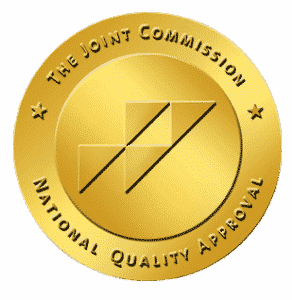Who gets addicted to drugs? For those whose knowledge of drug and alcohol abuse is strictly limited to movies and TV shows, it may come as a surprise that addiction spans all demographics and social classes. In fact, Psychology Today reports that over 77 percent of all illicit drug users are actively employed.
Modern research has shown that certain types of professions and job industries, rather than location or personal demographics, correlate with substance abuse. A lot of professionals with addiction may actually fly under the radar or shock others by revealing their struggle.
From high-ranking executives to entry-level workers, substance abuse has a wide reach. The good news is that learning what job industries are at risk helps provide insight into why addictions manifest in the first place. Keep reading to learn more about different jobs and how they correlate with addiction.
The Relationship Between Jobs and Addiction
If you glance at the jobs listed below, you might think that they don’t have that much in common. After all, do a food service worker and an attorney really perform the same kind of work? No, they do not, but they do share some pretty high-stress levels.
Frequent stress often means trying to find quick, easy relief. Many people in busy, fast-paced jobs, feel they don’t have time for healthier methods of unwinding. This all contributes to a substance abuse-positive culture within certain industries, making it all the harder for individuals to quit.
While this list is not all-inclusive of the professions (and job industries) that have high rates of substance abuse, it does include some of the top employment fields at risk. Keep in mind that this list is in no particular order.
Job 1: Food and Beverage Industry Workers
For those who have never worked in the food and beverage industry, it may seem like a fairly easy job, but this is actually a common misconception. Restaurants, bars, catered events, etc. are often very fast-paced and understaffed, and many workers have no choice but to deal with rude or overly entitled customers with a smile on their faces. Workers also have to stay on their feet and perform physically demanding work for anywhere between 6-10 hours.
In 2015, the Substance Abuse and Mental Health Service Administration reported that food and beverage/hospitality workers, in general, had the highest substance abuse rates in the entire American workforce.
Job 2: Performers and Artists
Substance abuse and Hollywood have long seemed to go hand-in-hand. After all, they make movies on this very subject, but the problem with many of those movies is that they tend to glamorize drug and alcohol abuse. What they don’t show is that many artists, performers, and even the executives who manage them, often become dependent on illicit substances to cope with everyday stress and keep up with the fast-paced nature of their field.
And it’s not just elite Hollywood actors or high-powered executives in the industry struggling with addiction — aspiring or lesser-known performers and artists around the country — resort to drugs and alcohol to alleviate stress or for exploratory purposes. Many artists also start seeking out psychoactive drugs in particular at young ages (often in college) because they falsely believe it will improve their work.
Job 3: Lawyers
It’s difficult not to be stressed when the work hours are extremely long, time off during weekends is scarce, and every case loss negatively affects your career. But what many people don’t know is that over one in five lawyers struggles (or has struggled) with drugs and/or alcohol during their career. Most of them also report starting substance abuse as early as law school. The fact that many people in legal professions struggle with job satisfaction can make substance abuse even more prevalent.
Job 4: First Responders
First responders — police offices, firefighters, EMTs and other emergency medical staff — are often well-respected in their communities. Unfortunately, this doesn’t help lower their stress levels much. First responders work long hours that are both physically and mentally exhausting. This puts them at an even higher risk of substance abuse, and many will experience post-traumatic stress disorder (PTSD), due to the traumatic nature of the job.
It is currently estimated that between 15 and 30 percent of first responders are suffering from substance abuse and addiction, though these numbers can be a lot higher based on individual professions. For example, nearly half of police officers report engaging in binge drinking both to cope with stress and to feel camaraderie with their coworkers.
Let Us Help You
If you or someone you know is struggling with substance abuse, don’t wait to seek help. At Rise in Malibu, we offer a range of addiction treatment programs in a beautiful location next to the Pacific Ocean.
We work with individuals who come from a wide range of backgrounds and professions and trust us when we say our treatment staff has seen it all! Deciding to tackle addiction and get a fresh start on life is a big decision, and it can seem extra daunting when you’re in a work environment that supports it. We invite you to reach out to us to learn more about how certain jobs can affect addiction and what you can do about it.







